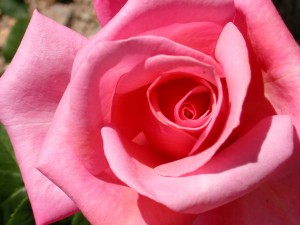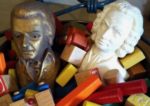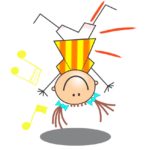Becoming A Pianist: A Worthwhile Journey, Gloria Fast
 Do you remember the instant you knew you were a pianist? Perhaps for you it was a gradual realization? The father of a former student of mine sent me this essay on his daughter’s journey to becoming a pianist, which she wrote for her English class.
Do you remember the instant you knew you were a pianist? Perhaps for you it was a gradual realization? The father of a former student of mine sent me this essay on his daughter’s journey to becoming a pianist, which she wrote for her English class.
It is always wonderful to learn that a student has made connections and taken ownership of what a teacher has given. Many times we never know what part we played in a student’s musical maturity. Other times, like this one, we are honored and humbled at the same time. I believe strongly that we are given what we need when we need it, even if we don’t appreciate it at the time. I feel so fortunate to have been able to do that for Gloria.
“I am hoping this will be an encouraging moment for you as a teacher/friend to Gloria and others. I hope your job is not a thankless one, but hopefully this paper …will serve to provide an encouragement in times that it may seem that what you do becomes a chore or is ‘thankless.’ ” I’m grateful for the family’s permission to publish the essay here. Enjoy!
How does one eat an elephant? Answer: One bite at a time.
As a young girl, I grew up in Tucson, Arizona. When I was two years old, I remember sitting on my Grand-mum’s lap for a piano lesson on her beautiful Yamaha baby grand piano. I was in awe of the beautiful sounds that my Grand-mum, a concert pianist, would bring with the touch of her slender hands to the polished keys. I loved the passionate emotion that came through each piece that Mum played. Listing to the gorgeous classical pieces she played on her piano, was a very moving experience. I knew that one day I wanted to be just like her; what I didn’t know was all that this dream would require of me.
During the next few years of my life, my family moved California where I was given the opportunity to take violin lessons; thus, I focused on violin instead of piano for a few years. My parents bought a lovely dark brown baby grand piano two years after our move. My mom began taking piano lessons and both of my parents encouraged my siblings and me to play on the new piano whenever we desired. I especially enjoyed tinkering on the new piano. However, I didn’t become serious in my pursuit of becoming a pianist until we moved back to Tucson a few years later.
Through a number of God-ordained events, my siblings and I were blessed to be given scholarships at the Tucson Symphony Women’s Auxiliary (TSWA), an organization that provides music lesson scholarships to children under the age of 18. I was 13 when a scholarship was awarded to me. This is where I met Dr. Gail Fischler who was to become my instructor. Dr Gail, a very thorough, practical piano teacher, initially came across as a very strict teacher. Eventually, as I came to know her better, I found her to be a patient and compassionate educator. One of the fun ways she used to help her students play a piece in the correct timing and rhythm was to have the student make up and say a word or catch phrase that would match the notes being played. Then, while playing the music, we would say the phrase out loud. One day, I was having trouble playing a particular measure in a song. Dr. Gail had me say the words, “chocolate Hershey Bar” while I played the notes in that measure. It worked! From that moment on, I was able to play that piece without a problem.
Although I loved my piano lessons, sometimes I became discouraged. I didn’t understand why Dr. Gail’s methods of teaching were so different than that of my friends’ teachers.
I certainly don’t wish to repeat difficult experiences. However, if I had not experienced difficulties while learning to become a pianist, I wouldn’t be able to fully appreciate being one now. I also would not be able to sympathize with others who are still beginning to learn an instrument. Although I loved my piano lessons, sometimes I became discouraged. I didn’t understand why Dr. Gail’s methods of teaching were so different than that of my friends’ teachers. Rather than allowing her students to instantly begin playing advanced classical works, Dr. Gail kept all of her students at a fairly simple level of music. We were expected to play with skill and in perfect timing. This required a lot of practice. I was convinced that I had been playing and practicing simple music in vain. I wondered in these discouraging moments why I couldn’t play complicated music like all my friends. “Is all this practice worth it? Will I ever become a pianist?”: I yearned for my simple sheet music to sound good. I knew that I shouldn’t compare myself to other musicians. However, I seemed to do this whenever I heard someone my age play an advanced piece of music. At this time in my life, I thought my success on the piano was measured by the playing of complicated pieces.
Over time, every musician develops what is a called a “musician’s ear,” or an “ear for music.” This is a term often used to describe how music sounds to the ear. When I first began taking lessons from Dr. Gail, my musician’s ear wasn’t developed. I now realize that, while advanced music is nice, music performed in correct timing and style is extremely important, and is more enjoyable to the listening ear. By giving me simple music, Dr. Gail knew that I would be able to focus on reading the notes and playing that piece, simple as it might appear, to its fullest potential. Although the notes themselves might not have seemed overly difficult, playing each piece in proper timing, with dynamics, the way it was intended to be performed by its composer, became quite the challenge for me. The skills she provided me are the keys that unlock vast amounts of sheet music to all musicians.
Recently, I watched a movie in which a famous classical piece was played as background music for a particular scene. Allegro Con Fuoco is a battle song that contains an air of excitement about to transpire. Listening to the performance of this piece, and having played this piece myself, the music I performed sounded just like the sound track in the movie. This occasion was an exciting experience for me. Although the arrangement of Allegro Con Fuoco that I played was much simper than the full orchestral arrangement performed in the movie, I have the rewarding knowledge that I have performed Allegro Con Fuoco just as well as that orchestra did. Just as the orchestra members performed that piece to the best of their ability, I played my simpler arrangement of the very same piece to the best of my ability. Experiences such as these, combined with further studies in music, cause me to appreciate the extensive amount of time and knowledge Dr. Gail had invested in me. With her careful teaching and insight, Dr. Gail prepared me for the time when I wouldn’t be by her side for piano lessons each week.
Singing loudly, to keep the congregation from pausing with the silent piano, I would scramble to find my place in the sheet music. In these frantic seconds, the popular catch phrase ASAP took on a whole new meaning: Always Sing At Pauses!
In March, 2011, my family and I moved from Tucson to Oroville, Washington. What a change! Since our new church was without a pianist, I eagerly volunteered to take the position. My first few weeks as church pianist were a bit shaky. I can laugh now, but at the time, it was rather embarrassing when in the middle of a song I lost my place in the music or couldn’t seem to get my hands where they needed to be at the proper time. Singing loudly, to keep the congregation from pausing with the silent piano, I would scramble to find my place in the sheet music. In these frantic seconds, the popular catch phrase ASAP took on a whole new meaning: Always Sing At Pauses! In spite of my many blunders, I learned techniques that made worship service sound a lot smoother and gratifying. During this period of intense learning, I relied heavily (and still do) on the strong foundation in theory Dr. Gail had prepared me with prior to the move.
After moving, I was without a piano teacher for over a year. I do not regret this, because during that year I taught myself more about the piano and music, which in turn produced a playing style that is my own. I also discovered a love for composing and decided that in addition to one day reaching the concert pianist level of playing, I would like to pursue a degree in the field of music. The freedom that I had to explore music over that year did wonders for me. It was as if I had a teacher, because, throughout that , the Lord always sent people with great musical talent into my life to guide and influence me with large portions of musical knowledge. After these encounters, it would take weeks – sometimes months – to process all the information that these friends blessed me with. Even today, I am still “digesting” much of the knowledge I gained! Nevertheless, at the end of that exciting year, I began to long for piano lessons with increasing intensity. I knew that once again, it was necessary to work on and learn new techniques only a piano teacher could help me with.
I had been focused on becoming a pianist for so long, I did not realize the dream had come true.
Within a month or two, I found a piano teacher who came with high recommendations from her students. Like Dr. Gail, Mrs. Grunst (or ‘Liz’, as I lovingly call her) is a kindred spirit ,and we connected almost instantly. At first, I was a bit nervous playing before a new teacher, but within a few short weeks, we grew accustomed to each other and I had fun learning to play pieces like “Moonlight Sonata.” When Mrs. Grunst gave me a fun arrangement of the hymn “ Blessed Assurance,” I discovered that I love to play runs! A run is a fancy name for a scale that is contained within a piece of music. During my early years as a piano student, it was my opinion that, although runs sound beautiful in certain pieces, the entire melody of the piece was disrupted when playing a run. After all, who wants to play a phrase and pause to run up or down various notes on the piano before continuing on with the next phrase? My taste in music has now been reformed; I love to perform runs and can’t imagine why I ever disliked them in the first place. Perhaps I felt this way because of the certain level of technique and perspective that one must possess in order to play a run. I love the way my hand feels as it glides through a run. Playing a run is like gracefully dancing from one side of a stage to the other side. I start on a low note on the piano and “run” up to the next set of notes with flowing movement. When playing a composition or piece, I look forward to each run with breathless anticipation. Even now, aw I write this, I am filled with excitement just thinking about how pleasurable it is to successfully complete a smooth run with ease. When Mrs. Grunst realized the way I felt about runs, she incorporated music that was specifically composed around runs into my lessons.
The sound that a pianist makes at the touch of his or her hands to the keys produces a different sound than that of the person who just plays the piano.
About the same period of time that I began playing classical works with Mrs. Grunst, my playing in worship service began to take on a different sound than ever before. I figured that this change in sound would last a few short weeks at the most. Even when I began receiving compliments from close friends and family, realization that a major change had occurred in my playing didn’t set in. At that point in my life, I considered myself to be someone who “just played the piano,” an aspiring piano student, but not a pianist. I wasn’t certain what defined the difference between the two; I only knew I wasn’t a pianist. Or so I thought. I had been focused on becoming a pianist for so long, I did not realize the dream had come true.
It is my observation that one notable difference between a pianist and someone who plays the piano is the sound. The sound that a pianist makes at the touch of his or her hands to the keys produces a different sound than that of the person who just plays the piano. To a listening ear, the exact same piece of music performed by both persons would sound very different. This is not to say that either student performs the piece incorrectly, their sound simply differs from that of each other.
Within a few months after a change in sound was noticeable, I had a revelation. Unexpectedly, it suddenly dawned on me – a am now a pianist! It has taken six years of hard work and practice, and I still have a long way to go in order to reach my goal of reaching the concert pianist level. Today, I no longer “just play the piano.” I have become a pianist. To me, it seems as though this has taken an entire lifetime to accomplish. Not a lifetime as defined as an exaggeration of time, rather the decision to become a pianist and working toward that goal was a choice that, for me, took a lifetime. Thanks to my patient teachers, family, and friends, what first began as simply “making noise” on my Grand-mum’s lap is finally paying off.
As one who has been though this long process of learning both how to play the piano, and becoming a pianist, I know firsthand how discouraged a beginning piano student can become when starting the process of learning the instrument. Learning to become a pianist has taught me that anyone can play the piano and /or any instrument; persistence is all that is required. One might ask whether natural talent is a factor. Talent is usually gained over the course of time, with a lot of practice, and is complemented by an individual’s passion for what they are doing. Everyone must learn, no matter the level of expertise they might begin at. The challenge of learning to become a pianist, is a large one; a student will undoubtedly face difficulties throughout his or her learning process. However, the endless rewards that are gained in learning to play this grand instrument guarantee to make this challenge an adventure worth one’s time and effort. In conclusion, I would like to end with one of my father’s favorite quotes, used when he tries to encourage us while attempting large projects: “How does one eat an elephant? Answer: One bite at a time.”



Beautiful story. My story is different. I hated the piano at first. I didn’t have one, but a neighbor of mine did, and he played it all evening, and everybody in our block of flats was hearing him. He was really bad at it. But years later I became friends with this neighbor, and occasionally I would go over to his place. He let me mess around with the piano, and I started to like it. And I liked it more and more as time passed by, until I couldn’t stand it anymore and bought my own.
What a lovely article, Gail, and a wonderful testament to your teaching.